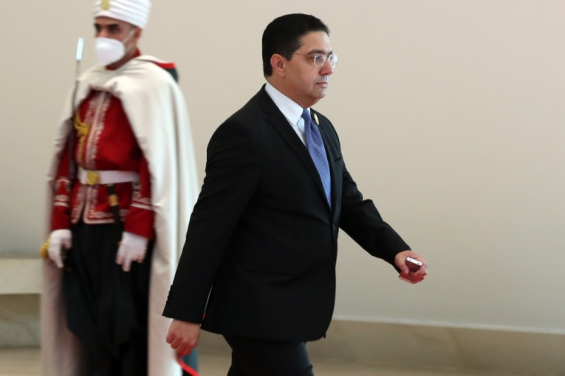Algeria is struggling to convince African and European countries close to Morocco to defend the Polisario's positions. In response to Morocco's success with countries once considered allies of Algeria and South Africa, such as Zambia and the Sahel states, Algeria has intensified its diplomatic efforts aimed at Morocco's partners on both continents.
Sierra Leone, a country that recognizes the Moroccan Sahara and sits as a non-permanent member of the UN Security Council, was Algeria's first target. On January 3, 2024, Algiers received the President of Sierra Leone, Julius Maada Bio. This was followed by official meetings between the foreign ministers of the two countries, on the sidelines of the 37th Ordinary Summit of the African Union, held in February in Addis Ababa.
The meeting's agenda included examining ways to «preserve the momentum of joint African action in support of just causes in the world», including in particular «the decolonization of Western Sahara», as stated by the Algerian Foreign Ministry in a press release at the time.
These efforts proved futile. On April 22 in Rabat, Foreign Minister Timothy Musa Kabba reaffirmed Sierra Leone's support for Morocco’s sovereignty over the Sahara.
Setbacks in Africa and Europe
Following this setback, Algeria turned its attention to the Central African Republic, a country which also recognizes the Kingdom's territorial integrity. On May 19, the Algerian Minister of Foreign Affairs received his Central African counterpart, Sylvie Baïpo-Temon, in Algiers. Both sides emphasized their commitment to regional stability and cooperation.
Three weeks after Algeria's promises, the Central African Republic reiterated its support for the Moroccan Sahara on June 10 in Rabat. Morocco plays a key role in peacekeeping efforts in the Central African Republic, and Ambassador Omar Hilale currently holds the presidency of the Central African Republic Configuration, a UN mechanism for stability.
After Bangui, Algeria tried its luck with Senegal, which has traditionally had strong relations with Morocco. The opening of a consulate general in Dakhla on April 5, 2021 is a testament to these ties. On May 22, Ahmed Attaf arrived in Dakar, bearing a message from President Abdelmadjid Tebboune to his newly-elected Senegalese counterpart, Bassirou Diomaye Faye. However, less than a week after this visit, Senegal reiterated its support for the Moroccan position on the Sahara.
The latest episode in this series of Algerian setbacks comes from Slovenia, another non-permanent member of the Security Council. On Tuesday June 10, Slovenia described the Moroccan autonomy plan for the Sahara as a «good basis for reaching a definitive and consensual solution» to the regional dispute. This statement came a few weeks after Slovenian Prime Minister Robert Golob visited Algiers, where he held talks with President Abdelmadjid Tebboune. Slovenia's endorsement of Morocco's position highlights the challenges Algeria faces in winning support for the Polisario.
Other Central European countries have adopted similar stances on the Sahara question, such as the Visegrád Group (Hungary, Poland, the Czech Republic, and Slovakia). Additionally, Serbia expressed its support for Morocco's territorial integrity in June 2023, following a visit by Algerian Foreign Minister Ahmed Attaf.




 chargement...
chargement...











